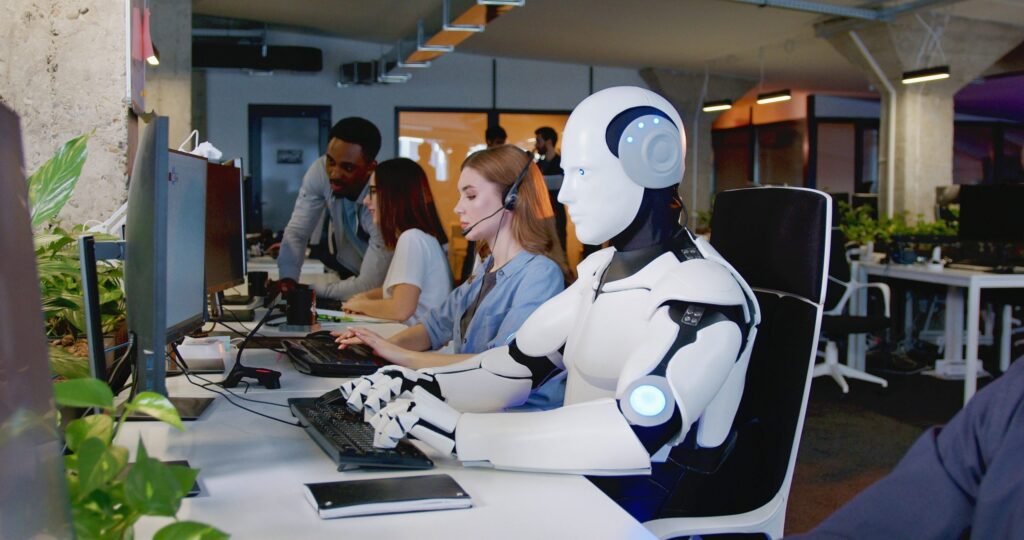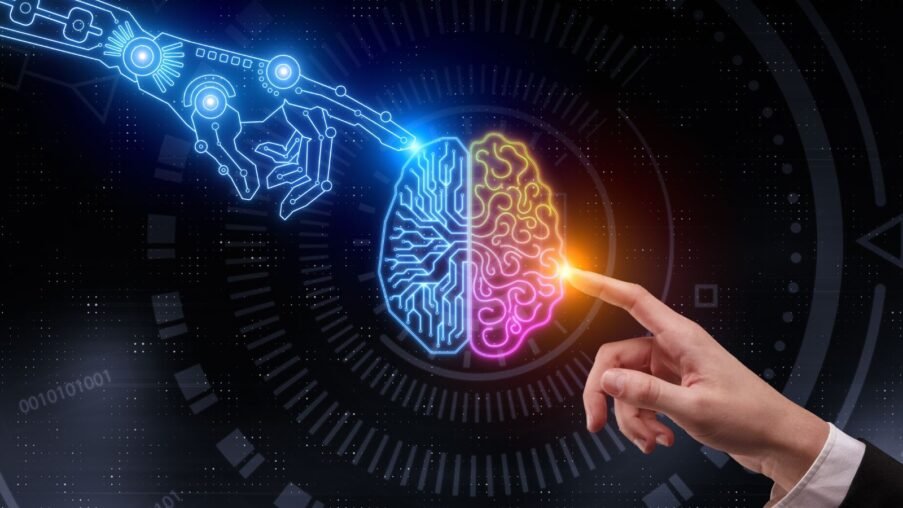The conversation around Artificial Intelligence (AI) and its impact on jobs is no longer a distant warning, it is a present-day reality. From retail and customer service to fiancae and journalism., AI has taken over the industries. Healthcare industries also have AI, which is transforming healthcare at a pace that is both exhilarating and unsettling. What was once confined to science fiction is now reshaping how we work, hire, and even define productivity.
While AI brings remarkable advancements in efficiency and innovation, it raises critical concerns for us human professionals. It raises unsettling questions like: Are human workers becoming obsolete? Will automation trigger mass unemployment, or are we simply transitioning into a new kind of workforce?
Artificial Intelligence, like machine learning, natural language processing, and robotic process utomatiare being adopted globally to handle tasks once performed by humans. Some of the key areas of job disruption include Customer Service, Manufacturing, Transportation, Finance, and Content Creation.

Jobs Most at Risk vs. Jobs Being Created
Researchers (World Economic Forum and McKinsey reports, among others) agree that AI will replace and create jobs:
Most at risk: data entry clerks, telemarketers, bookkeeping clerks, and assembly line workers.
In demand: AI engineers, data scientists, cybersecurity specialists, human-machine interaction designers, and AI ethicists.
It is an expression of duality rather than disappearance of work. As repetitive or rule-based work is being assumed by AI, it is creating opportunities for new types of work demanding skillfully human abilities such as empathy, creativity, ethical thinking, and problem-solving at a deeper level.
In spite of the apprehensions, AI is not endowed with the emotional quotient, moral sense, and flexibility of the human mind. In most professions, including education, counseling, care giving, and management, the human element cannot be replaced. The next generation of work will probably witness a synergy between humans and machines, with AI doing the grunt work and humans guiding the strategic, ethical, and relationship dimensions.
AI is not only displacing jobs—it’s transforming them. Adaptability is the secret to success in this age: re-skilling, up-skilling, and embracing a culture of lifelong learning. Governments, corporations, and schools have a vested interest in getting society ready for this transformation.
Instead of fighting automation, we need to ask: How do we harness AI to work with us, not against us? In our next blog, we will discuss the problems that AI can create for us. Keep Reading Foramz for your daily dose of Moral Support.


Leave a Reply